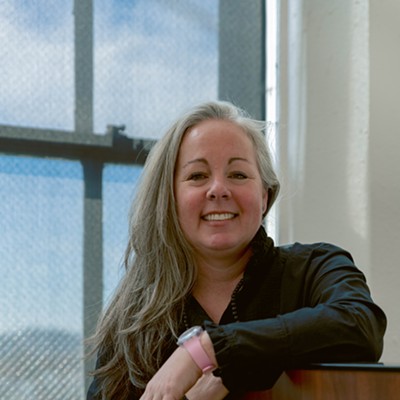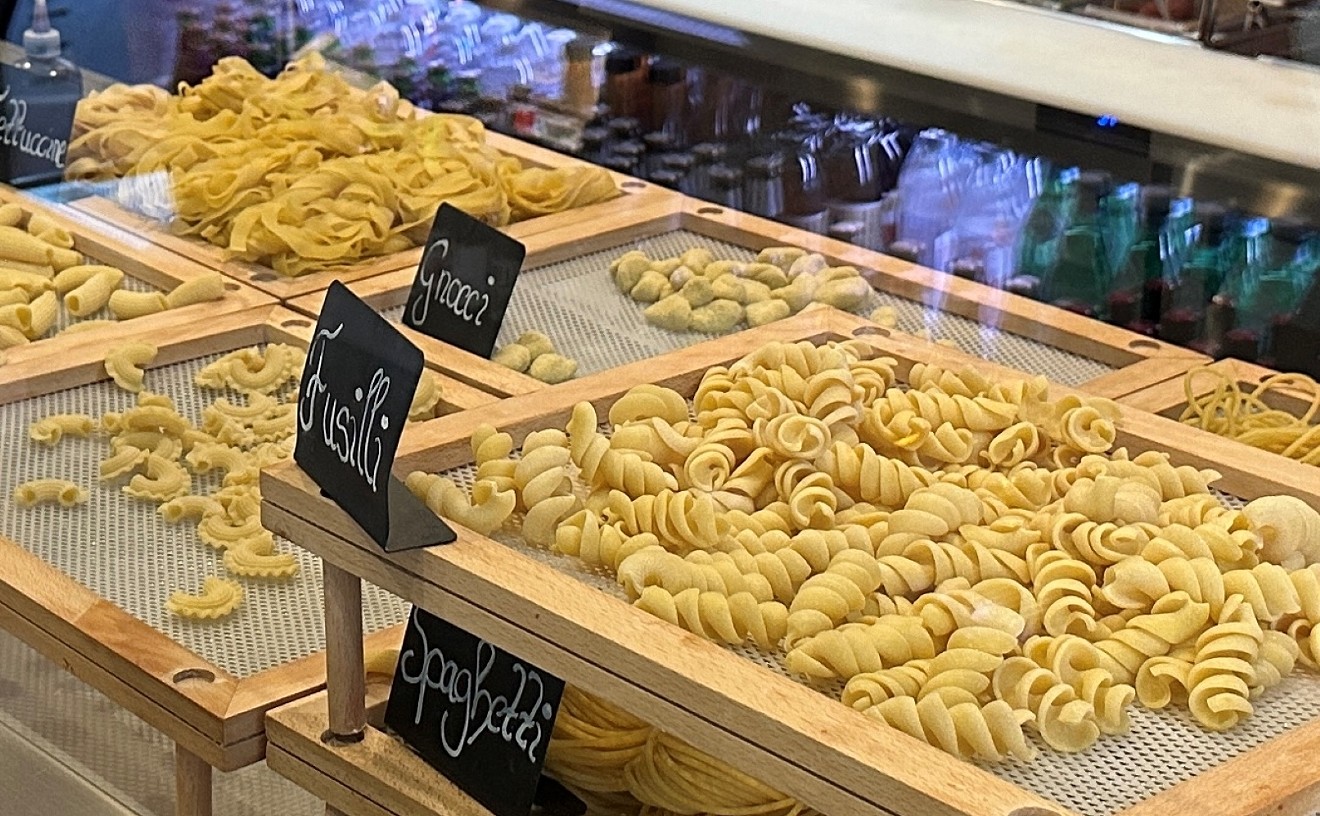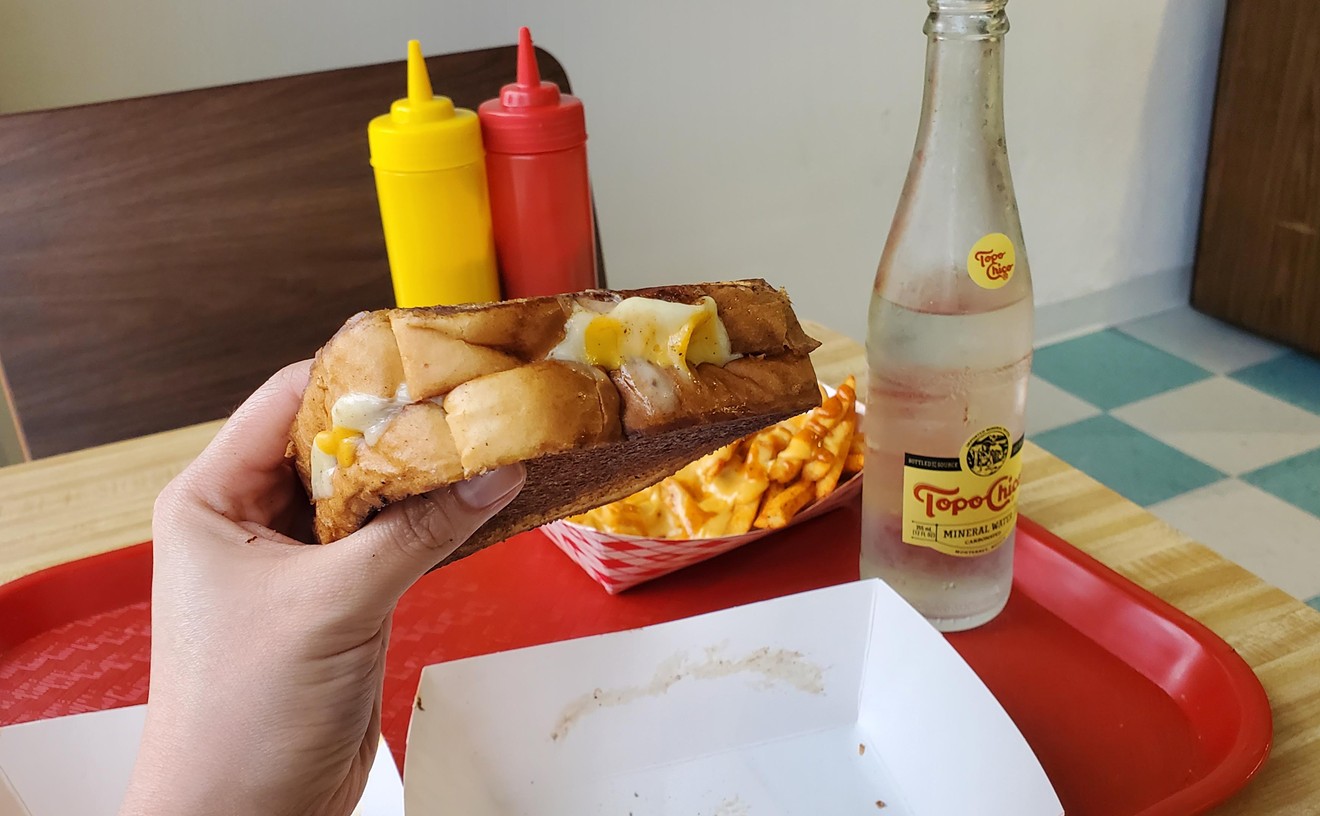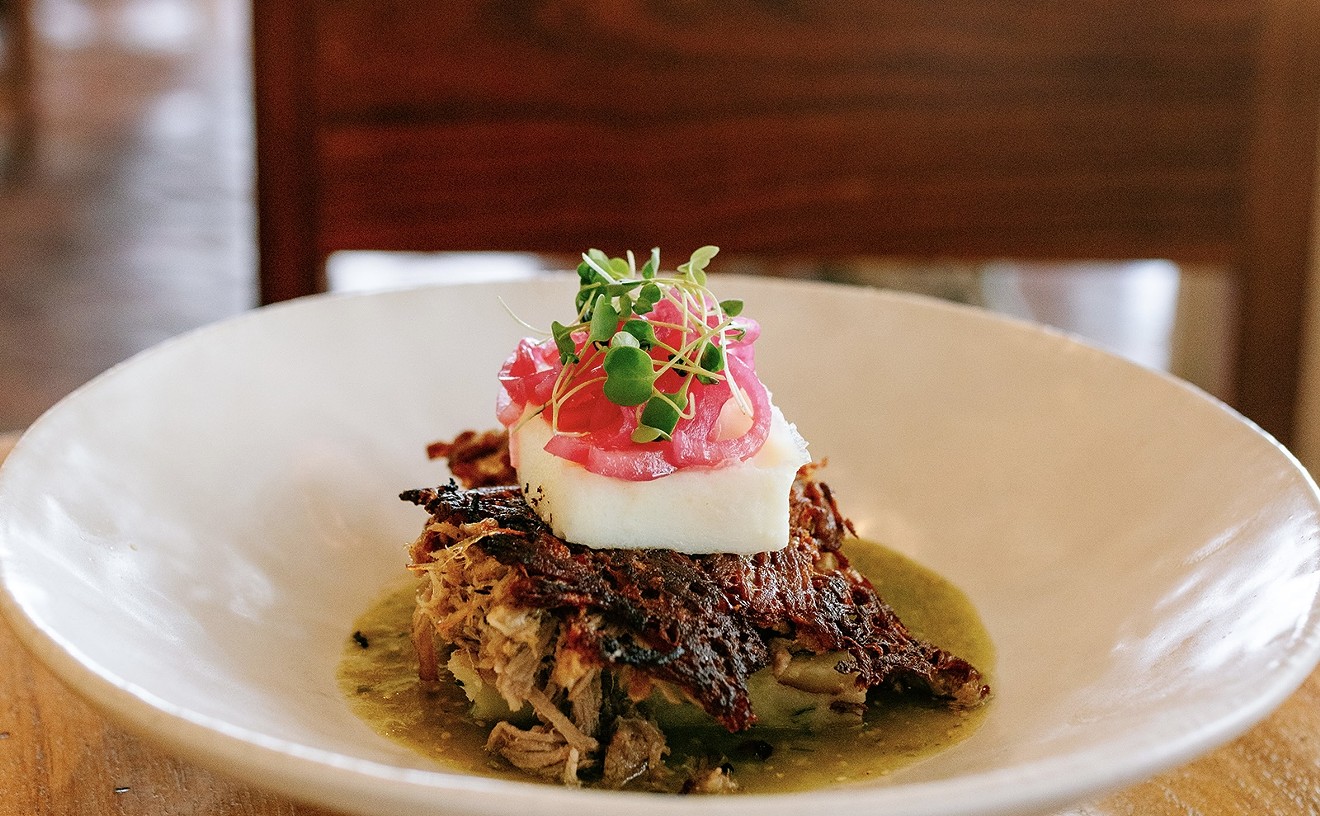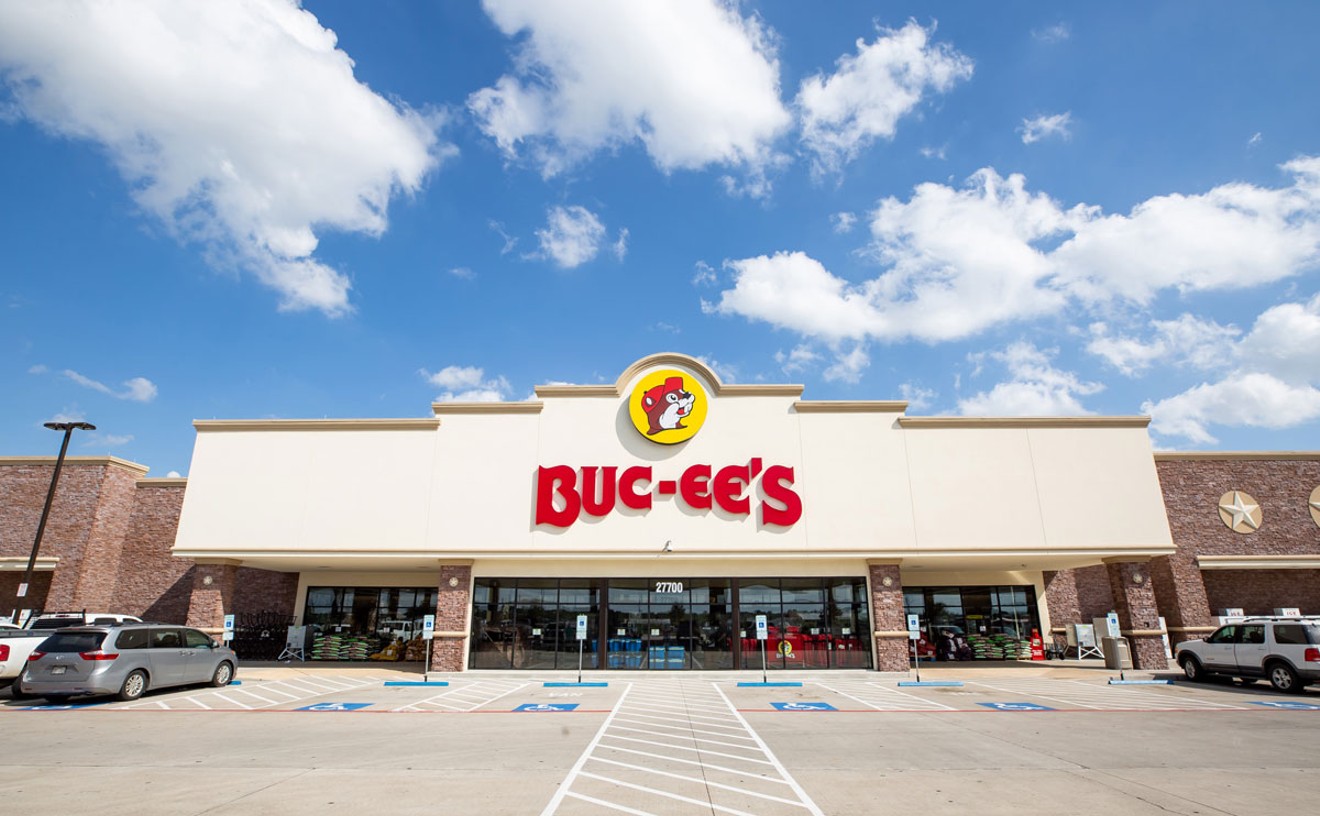Emporium Pies opened just several months ago in a remodeled 1930's Victorian bungalow in the heart of the Bishop Arts District. It all began, however, in 2011 when Megan Wilkes, 26, and Mary Gauntt, 24, met through a mutual friends. Wilkes had hopes of becoming an independent business owner and Gauntt had a knack for baking.
Call it a slice of fate.
Gauntt started testing dozens of pie recipes, while Wilkes created a business plan with 17 different reasons for failure. Since then, they've made it through two holiday seasons. And while the young women are quickly learning the business of pie, they're trying in earnest to take it slowly, even when that involves an air mattress outside the kitchen to move pies all night.
What made you ladies want to open a pie shop? Wilkes: When I moved here after college in Oklahoma, I was doing interior design, but I wanted to work for myself. I just wanted to have a little more flexibility. Then, I knew I wanted something along the lines of a community place, like a coffee shop, but eventually settled on a pie shop.
So, Megan, you run the business side of things? Wilkes: Yep, I manage the business and the front end of the store. Mary manages the back of the store [the kitchen] and develops all the recipes.
Mary, when did you start baking? Gauntt: In college.
Just cracked a couple cookbooks? Gauntt: Yeah, I was basically just making cookies for myself and they really weren't that good, so I figured out how to make my own recipes. I started researching it online and reading people's reviews on how recipes work, then I started reading baking science books and learning different things, like what makes it more tender, what makes the flavor better and learned about the mixing method, which makes a huge difference too.
What about different types of flour? Gauntt: As soon as flour hits liquid, gluten forms. The more you mix, the tougher it gets. So, you should really just mix the ingredients [she's talking specifically about cookies still] enough so that they are combined. If you over-mix, the cookies will be tough because the gluten strands get tighter and tighter.
Have you found a vanilla you like? Gauntt: Imitation vanilla has a lot of weird things in it. I really like Nielson-Massey Madagascar bourbon vanilla. I used that in frosting once when I made cakes and it changed everything.
Do you have any tips for budding home bakers? Gauntt: Real butter for sure; shortening or margarine just isn't going to give you the same body or flavor. Pure vanilla extract always. Most of the time, good products come from good ingredients. Also, some flour changes throughout the season. So, you may buy Gold Medal flour all year, but the gluten content will be different each time. King Arthur has the same amount of gluten every time though; it's a really consistent product.
When you two decided to open this spot a year ago, I imagine there was a lot of pie testing. Were there some disasters? Gauntt: Prior to this, I had actually never made a pie. So there were a lot of disasters, especially when I first started. I had read a lot about how to make a crust. I didn't understand about cooking it at different heats. I learned the hard way about 50 pies in.
Was there a particular pie recipe you just had to walk away from? Gauntt: I felt that way about a lot of things. I had about a month to get my first recipes together, while I was in school and working. So, it was crazy. Then, Megan told me were taking our pies to Urban Acres, and I was not ready. I didn't think they were good at all. But they were actually some of our best, like the Drunken Nut and French Silk. Some of that was just being alone with pie too much.
Wilkes: She was like the cat lady, but with pie.
Gauntt: I was picking them apart and couldn't tell what was good anymore. I made like 15 pies of each. It was too much.
Is running a pie shop harder than you expected? Wilkes: It's more time-consuming then we thought. I was expecting to have three of four people here all the time. The initial concept was to have this place that's cute and everybody wants to come in -- the holidays would be a big deal for us, but the rest of the year we'd have to bust it out the back door with wholesale business. Instead now we have 14 employees, four in the back and the rest rotating in the front. We stay really busy in the front all day, so there are about nine people that work in the front, all part-time. And my mom is our swing employee.
Is it difficult to manage the inventory? Wilkes: Yeah, we just never know what traffic is going to be like. Weather is a huge factor. This weekend we sold out two days in a row.
Is it good to sell out? (Seems like an obvious question, but sometimes selling out means you're not making enough, so stay with me.) Wilkes: We don't really like selling out because we want, obviously, to be able to serve everyone, but we can't come in half way through the day and just make more pie. The best we can do is, like on Saturday we took some of the pies for Sunday. Then Mary came in that night and made more for Sunday. So, we try to stay on top of it.
Gauntt: We're a real bakery. We bake everything from scratch. So we have to have time to bake it. As much as we want to provide enough, we don't get too upset about it.
Then, if you overshoot, you waste product. Wilkes: That usually only happens when either the weather is really bad or there's something going on and a lot of our local people don't come in. But, we rarely have extra.
Are pie sales fickle? Wilkes: We're learning the seasonality of this area. Like, the first week of January is going to be way different then December, even September. Gauntt: And we were really shocked by this weekend. It was like a holiday weekend.
People are over their New Year's resolutions. Wilkes: They are. We sold as much pie this weekend as we did the weekend before Thanksgiving, as far as the slices go, not the whole pies. We weren't ready for that.
Are you looking into more wholesale opportunities? Wilkes: We are just trying to keep up with the people who come in the front door. We have to be able to serve them all before we grow the business more. But, in the future, definitely.
Sounds like a cautious plan. Wilkes: When we first started, we were so impatient. But, over time we've really learned how to be patient with things. The thing with wholesalers is we have to be careful about oversaturation of our product in other places. We want people to come here.
Gauntt: And now that the holidays have passed we've learned a lot and have put better systems in place in the kitchen.
There seems to be inherent risk in any direction you decide to take, whether it be concentrating on wholesale or walk-ins. Wilkes: A lot of people believed in us when we started this business, but they knew it was a risk. There's not a pie shop in Dallas. The risk was that either there is a market for a pie shop in Dallas and we're going to tap that, or there isn't a pie market in Dallas because 17 other pie shops have opened and none have made it. We have a lot of contingency plans for if things go wrong, but we didn't have any for if things go incredibly right. The things we have problems with right now are trying to figure out how to expand.
Will there be other pie shops? Wilkes: Not right now. But, we need to expand our kitchen so we can meet demand.
So, you're tapped out in terms of baking capacity? Wilkes: Definitely. Gauntt: We learned how to maximize every inch of space in that kitchen and use every minute that oven can give us.
During the holidays was it around-the-clock? Wilkes: We had an air mattress on the floor in the dining room. At night we'd pull all the blinds shut as soon as the front closed, blow up our air mattresses and stay here all night.
Just taking pies in and out of the oven? Wilkes: Yes, everything was made, we were just moving them in and out of the ovens.
Not a bad problem to have though. Wilkes: Thankfully all of our stomach ulcers have been caused by success and not by failures.
Mary, what pie are you most proud of? Gauntt: That's a tough one. [Thinks...] I'm proud of them all in different ways, I guess.
Sounds like you're talking about kids. Gauntt: Lord of the Pies, I guess. [A massive deep-dish apple pie with a cinnamon streusel topping.] I almost gave up on that one, and I didn't want to keep working on it because there were so many issues with it. It was hard to find a crust to hold it together. But, my husband was insistent. I worked on it for over a month and finally figured it out. Now it's our most popular. I sort of love it and hate it at the same time because it takes so long to make.
How many pieces of pie do you each eat a week? Wilkes: None. I eat leftover ingredients, but not a whole piece. Gauntt: None, except for when I'm developing a new recipe. I'll pick at chocolate chips.
Have you ever eaten so much pie it's made you sick? Gauntt: After I do recipe development for a month, the last thing I want to eat is pie. I'd make four of five pies a day and then I'm just like ... blah...
Have you ever puked from pie? Gauntt: I've gotten sick and needed to lie down, but never actually puked. I've felt sick like that for a month sometimes.


